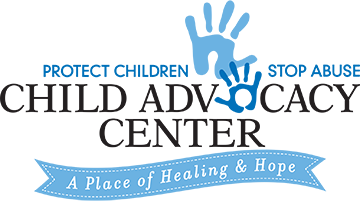How to Make a Child Abuse Report
Important Contact Information for Reporting Child Abuse or Neglect
If you suspect child abuse or neglect, contact the Department of Social Services (DSS) during business hours (Monday–Friday, 8 AM–5 PM) or the Sheriff's Office after hours, on weekends, or holidays.
Cumberland County
- DSS: (910) 677-2450
- Sheriff’s Office: (910) 323-1500
Hoke County
- DSS: (910) 875-8725
- Sheriff’s Office: (910) 875-5111
Robeson County
- DSS: (910) 671-3788
- Sheriff’s Office: (910) 671-3100
When Should I Make a Report?
Immediately. If you suspect that a child is being abused or neglected, report it without delay to your local DSS during business hours. If the situation occurs outside of regular hours, contact your local Sheriff’s Office.
How Do I Make a Report?
You can make a report in person, by phone, or in writing. The report must include enough information to be investigated. (See next section.)
What Information Do I Need to Make a Report?
To the best of your ability, provide the following:
- The child's name, address, and age
- The name and address of the child's parent, guardian, or caretaker
- Names and ages of other children under 18 living in the same home
- The child’s current location, if different from their home address
- The nature and extent of any injury, condition, or concern related to the abuse, neglect, or dependency
- Any other information that may help determine the need for protective services or court involvement
What is the Role of Child Protective Services (CPS)?
Child Protective Services works to protect children from abuse and neglect while striving to preserve the family unit whenever possible. CPS:
- Investigates and intervenes in cases of physical or mental injury, sexual abuse, exploitation, or neglect
- Assists children who lack a parent, guardian, or custodian to provide care and supervision
- Supports families in creating safe, stable, and nurturing environments
Are There Other Situations When I Must Report?
- Missing Child (under age 16): A parent or guardian must report the child’s disappearance to law enforcement within 24 hours. Anyone who reasonably suspects that a child has disappeared and may be in danger must report it as soon as possible.
- Violent or Sexual Offense: Any adult (age 18 or older) who knows or should have known that a juvenile (under age 18) has been a victim of a violent crime, sexual offense, or misdemeanor child abuse must immediately report it to local law enforcement.
VERY IMPORTANT
The child disclosing abuse or neglect may feel ashamed, angry, scared (especially that you won’t believe him/her), and/or powerless. You may feel outrage, anger, frustration, sadness, disbelief, or disgust in response to what the child is telling you. However, it is of UTMOST IMPORTANCE that you remain calm and in control of your emotions. Children pick up on every little reaction and may close down if they suspect you are having a negative response. In order to help the child, it is important that you stay calm in order to be able to reassure the child that you will see to it that something is done to help keep him/her safe.
DO:
- *Listen carefully to what the child is saying
- *Tell the child you believe him/her
- *Tell the child the abuse was not his/her fault
- *Let the child know you will make a report to help stop the abuse
DO NOT:
- *Make promises you cannot keep, such as promising that you will not tell anyone
- *Push the child into giving details of the abuse; your job is to listen to what the child wants to tell you, not investigate
- *Ask direct questions to the child – this could be harmful to the investigation
- *Discuss what the child has told you with others who are not directly involved with helping the child
* This information quoted in in part from Prevent Child Abuse North Carolina (www.preventchildabusenc.org). The Child Advocacy Center, Inc. is an Affiliate Agency of Prevent Child Abuse NC.
